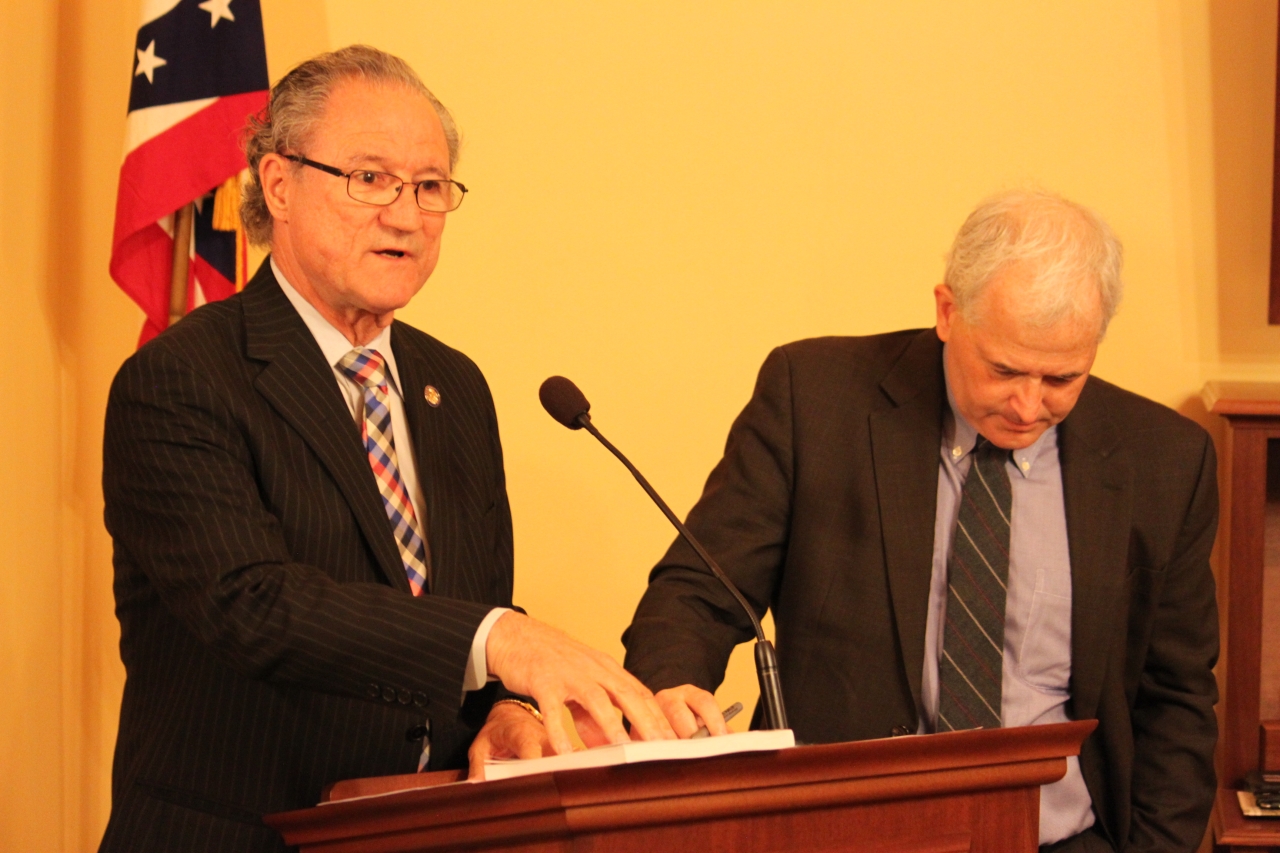Lawmakers Say Stopping Energy Standards Costs Ohio's Economy, Consumers and Environment

State Reps. Mike Foley (D-Cleveland) and Robert F. Hagan (D-Youngstown) on Wednesday discussed potentially harmful implications of Senate Bill 310, legislation to suspend Ohio’s—by most accounts, successful—advanced energy standards. If SB 310 becomes law, it would make Ohio the first state to reverse Renewable Portfolio Standards (RPS) by eliminating targets for advanced energy and freezing targets for renewable energy.
The controversial bill was scheduled for a committee vote today, and it was widely expected to be on the House floor this afternoon. However, at the eleventh hour, the bill was pulled from the committee schedule and now awaits further action.
“There is a reason GOP lawmakers are thinking twice about moving this bill,” said Rep. Hagan. “Instead of continuing to focus on a rapidly developing sector of our economy, this bill amounts to a big handout to utility companies at the expense of Ohio consumers and businesses. Ohioans are seeing this 310 for what it really is—a political favor that benefits a few wealthy, well-connected political supporters at a substantial cost for the rest of us.”
Recent estimates project that Ohio ratepayers will pay more than $150 for the two years that the energy efficiency standards are on hold. Commercial customers face an average of $31,000 more than their current rates. Overall, freezing the state’s advanced energy standards could undercut $6 billion in potential capital investment in the state.
The bill also eliminates a requirement that half of RPS benchmarks be met with Ohio projects, which prioritizes some Canadian industry over Ohio jobs.
“This isn’t just a handout to big energy corporations, but it’s a handout to surrounding states and other countries that will see more advanced energy business because Ohio wants to move backwards,” said Rep. Foley. “While the rest of country and most parts of the world move toward more energy efficiency and greater use of renewable energy sources, Ohio is poised to be an even bigger contributor to global warming and climate change. We’re already the fifth largest emitter of greenhouse gases in the US, and to add to that problem with SB 310 is irrational and, frankly, immoral.”
In 2008, the Ohio legislature passed RPS with overwhelming bipartisan support. Over the past six years, these energy standards helped create over thousands of jobs and saved Ohio ratepayers $1.03 billion with over $4 billion in potential savings projected over the next 10 years. A study by FirstEnergy estimated that consumers save two dollars for every dollar spent on energy efficiency standards.




